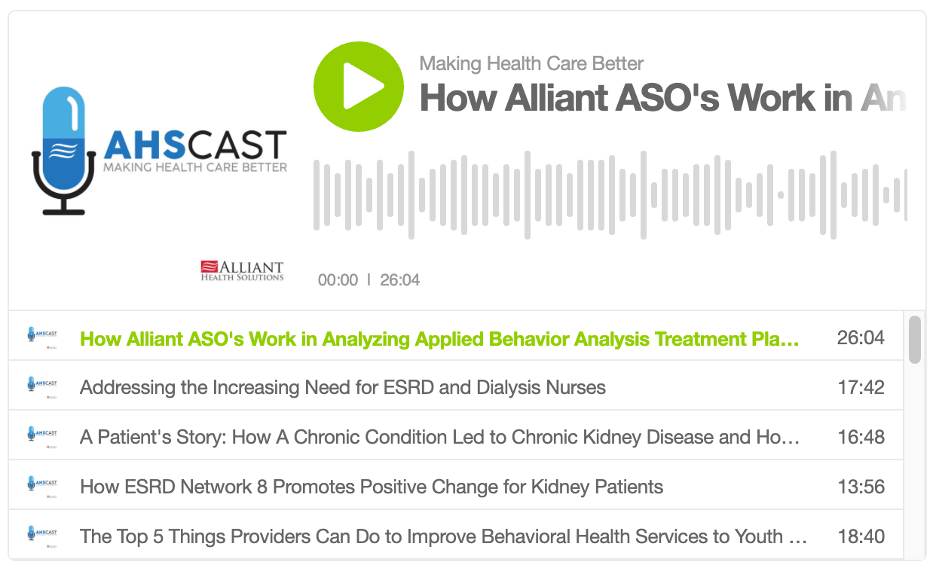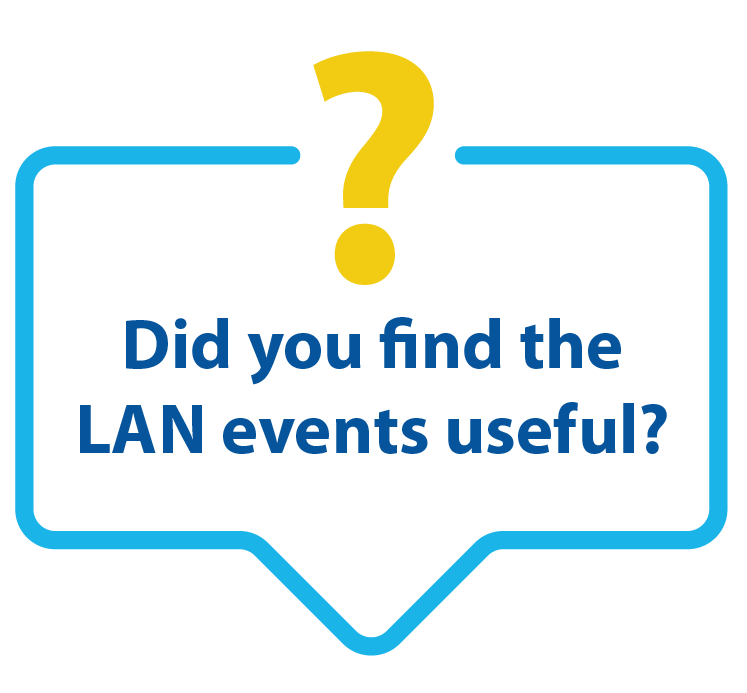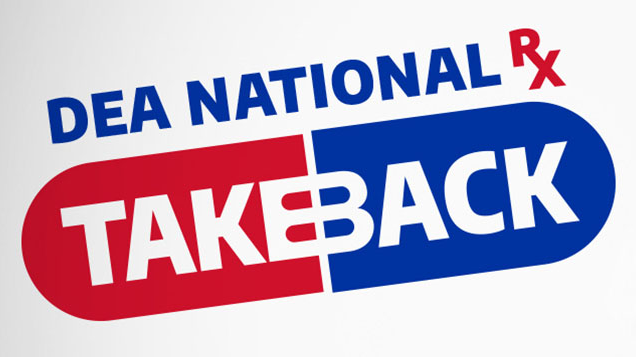|
|
|
|
Please share this email with friends or colleagues using these links:           
(Please do not forward the email as it may impact your subscription settings)
|
|
A monthly newsletter highlighting events and resources for Nursing Homes & Community Coalitions
In This Issue:
|

CMS Hosting Rural Health Quality Webinar
The Centers for Medicare and Medicaid Services (CMS) invites the public to attend the upcoming webinar Rural Health Quality: How CMS Initiatives Improve How We Measure and Address Gaps in Care. This presentation will highlight the unique challenges surrounding quality measurement in rural settings and how CMS is working to address these issues to ensure equitable care is provided to all Americans regardless of where they reside. CMS will host this presentation twice. Register for the session that works best for you.
Space is limited, so please register in advance if you can attend. If you have questions on how measurement can support rural health quality that you would like addressed during the presentation, please contact MMSSupport@battelle.org.
|
|
|
|
Our team is collecting and curating the essential trainings, events, resources and vaccine updates about COVID-19 and influenza on our website so you can visit one page to find the information you need. We've also outlined the essentials below.
View All COVID-19 News & Resources
Training & Resources
- COVID-19 for Older Adults: What Is the Best Mask for COVID-19? This article from the National Council on Aging uses updated guidance from the Centers for Disease Control and Prevention (CDC) to help inform older adults on the safety of masks and when to wear one. Read Article
- COVID-19 Vaccine Booster Flyer–Why Should I Get Boosted flyer. Post this booster flyer in your facility to encourage staff and residents to get boosted. English Flyer | Spanish Flyer
- Mask Up, Sleeves Up flyer. Post this flyer to encourage mask up and sleeves up. Download Flyer
- Alliant created a visitor talking points flyer for nursing homes. Download Visitor Talking Points Flyer
- View Alliant's visitor flyer for nursing homes. Download Attention Visitor Flyer
- Putting COVID-19 Numbers and Vaccinations into Context. This presentation and video help explain the risks of COVID-19 relative to other events such as lightning strikes, tornadoes, traffic fatalities, etc. and illustrate the impact that COVID-19 vaccinations have on reducing risks. Get the Presentation and Videos
CDC Recommends Additional Boosters for Certain Individuals
Data show the importance of vaccination and booster doses to protect individuals both from infection and severe outcomes of COVID-19. For adults and adolescents eligible for a first booster dose, these shots are safe and provide substantial benefits. During the recent omicron surge, those who were boosted were 21 times less likely to die from COVID-19 compared to those who were unvaccinated and seven times less likely to be hospitalized. CDC continues to recommend that all eligible adults, adolescents, and children ages 5 and older be up-to-date on their COVID-19 vaccines, including getting an initial booster when eligible. Read More
People With COVID-19 More Likely To Develop Diabetes During the Post-Acute Disease Phase
A study published in The Lancet Diabetes & Endocrinology found that “among 181,280 veterans who tested positive for COVID-19, there was a 40% higher risk for incident diabetes during the post-acute phase of the disease compared with a contemporary control group.” Also, over 12 months, there was “a significantly higher excess burden of new diabetes among those with a positive COVID test.” Read the Study
Boosted Nursing Home Residents 10 Times Less Likely To Be Infected With COVID-19
According to new figures released by the CDC, nursing home residents who have received booster doses of COVID-19 vaccines are 10 times less likely to contract the disease. Read the Article
Updated Strategies to Mitigate Health Care Personnel Staffing
Due to concerns about increased transmissibility of the SARS-CoV-2 omicron variant, the CDC guidance was updated to enhance protection for health care personnel, patients and visitors and address concerns about potential impacts on the environment the health care system given a surge of SARS-CoV-2 infections. View Strategies
Vaccine Updates
2022 CDC Adult Immunization Schedule
The 2022 Adult Immunization Schedule is available from the CDC. The schedule includes recommendations for adults ages 19 years and older. Printable schedules and the CDC vaccine schedules app are available for health care providers. Visit the Webpage
|
|
|
Leadership Lessons
Words of advice from leaders on the front lines.
This month’s leadership lesson is from Rosa Abraha, MPH, the health equity lead for Alliant Health Solutions.
The Time is Now for Health Equity
“Racism, both structural and interpersonal, are fundamental causes of health inequities, health disparities and disease. The impact of these inequities on the health of Americans is severe, far-reaching, and unacceptable.” — Centers for Disease Control and Prevention
The CDC’s April 2021 declaration of racism as a serious public health threat prompts a necessary point of reflection for us as a nation:
- Do our governing bodies, our businesses, our schools and even our health care system truly promote anti-racism and address the enduring health disparities impacting our minority communities?
- Do our highest levels of leadership promote mirror the width and depth of the diversity of the communities that we serve?
- Are our policies, programs and interventions truly inclusive of the most marginalized and underrepresented in our society?
- If not, what gaps remain?
These are the questions that I ask myself daily as the health equity lead at Alliant Health Solutions. The COVID-19 pandemic shed a light on the social, economic and racial injustice and inequity at the forefront of public health. The pandemic revealed the inevitable truth that health equity is still not a reality as racial and ethnic minority groups continue to be unequally burdened by sickness, death, loss of jobs, loss of homes, health illiteracy, food insecurity and more. Recognizing these disparities, we must now move into collective action by creating cultures and systems that promote equity and belonging, especially for the most disenfranchised groups in our society. In health care, we do this by:
- Acknowledging and dismantling our internal biases and discriminatory practices as providers and public health practitioners to honor our service to the entire public.
- Reshaping our leadership teams to include innovative and thoughtful perspectives from historically marginalized groups, including Black and Brown leaders and women.
- Moving beyond the silo of health care and engaging with non-traditional public health partners like community coalitions, departments of transportation, schools, faith-based organizations, businesses, professional associations, and other influential social and economic organizations that impact the social determinants of health.
Continue Reading on our Website
Best Practice Corner
Each month Alliant Health Solutions collects exemplar practices from organizations across the seven-state region. Thank you for your leadership, creativity and perseverance.
Tennessee Launches Calculator to Help Residents Determine Booster Eligibility
The Tennessee Department of Health launched a new booster calculator to help residents identify when they are eligible for their next COVID-19 booster shot. According to the CDC, individuals who received the Pfizer-BioNTech or Moderna COVID-19 vaccine are eligible for a booster shot five months or more after completing the initial series. For adults ages 18 and older who received single-shot Johnson & Johnson vaccine, a booster dose is recommended two or more months after the initial vaccine. Use the Tool
Louisiana Nursing Home Association Partnering With OSHA Consultant Group
The Louisiana Nursing Home Association (LNHA) has a new cooperative partnership agreement with the Louisiana Workforce Commission and the Occupational Safety and Health Administration (OSHA) Consultation Group. The program will run from April 1, 2022, through March 31, 2023. OSHA partnerships are unique agreements designed to encourage, assist and recognize partner efforts to eliminate serious hazards and enhance workplace safety and health practices. OSHA partnerships establish specific goals, strategies and performance measures to improve worker safety and health. Read More
HBCU Representatives Hold Summit on Pandemic's Disparate Effect on Mental Health
The North Carolina Department of Health and Human Services partnered with the state’s Historically Black Colleges and Universities to host a mental health summit to assess the mental health needs of students as a result of the COVID-19 pandemic. Read about the Summit
Do you have a promising practice to share? Please reply to this email and we will feature you in an upcoming issue.
Health Equity Corner
Alliant Health Solutions' health equity lead, Rosa Abraha, curated trainings, events and resources related to health equity. Check out the resources listed below.
Topic: Reducing the Health Disparities Gap: A Practical Framework for Promoting Health Equity in Your Hospital
Date: Thursday, April 14, 2022
Time: 1-2 p.m. ET
Registration Required: Register here
Health inequities are seen in rates of diseases, disability, the severity of disease and access to treatment. Health equity requires removing obstacles to health such as poverty, discrimination and their consequences, including receiving quality health care. It is not enough for a hospital to provide world-class care. We must actively help people receive that care. Join Alliant Health Solutions, TMF and the HQIC community as we present a practical framework for promoting health equity in your hospital.
Alliant Health Solutions and TMF are pleased to have Priya Bathija, vice president of strategic initiatives, and Julia Resnick, director of strategic initiatives, with the American Hospital Association present during this call. They will discuss how to drill down into the data and a community partnering framework to address social needs and social determents of health while also sharing tools and resources, including a health equity roadmap. Leticia Rodriquez, CEO, and Brandy Wolf, clinical informatics and pharmacy manager at Ward Memorial, will also share success stories around addressing COVID-19 and health equity from the perspective of a rural critical access hospital.
Come ready to leave in action on how to get started and improve upon developing your hospital culture of health equity.
|
AHSCAST - Making Health Care Better
 |
Everyone deserves quality health care.
Tune into the Alliant Health Solutions Making Health Care Better podcast every other Thursday as they interview guests committed to making health care better. If you are a health care consumer, provider, insurer, system or consultant, this is the podcast for you. View All Podcast Episodes |
|
Events
|
Upcoming Learning & Action Network (LAN) Events
- Combined Community Coalitions and Nursing Homes: Applying Evidenced-Based Best Practices To Prevent, Mitigate and Manage Delirium Across Care Settings: Part 4
Tuesday, April 19 at 2 p.m. ET / 1 p.m. CT (30 min.)
Delirium is a common and potentially preventable complication of illness or injury, especially for those individuals of advanced age and/or baseline cognitive impairment. Please join us for Part 4 of discussions related to delirium prevention, identification, treatment and management. Case examples across the health care continuum will be introduced to facilitate relatability.
Register Now | View Agenda
Register for Upcoming LAN Events
Last Month's Learning & Action Network (LAN) Events
- Combined Community Coalitions and Nursing Homes: Applying Evidenced-Based Best Practices To Prevent, Mitigate and Manage Delirium Across Care Settings: Part 3
Recorded March 15
This webinar focused on the role of pharmacological agents in the prevention and mitigation of delirium. Topics for this session included:
• Evidence-based content on identifying medications that can cause delirium
• Suggestions on de-prescribing of deliriogenic medications
• Alternatives to deliriogenic medications
• Use of medications to alleviate/mitigate symptoms of hyperactive behaviors
View Recording | View Slides
Watch Previous LAN Events and Bite-Size Learnings

Were You Able to "Use Tomorrow" What You Heard During the LAN Events?
If Yes, Click Below.
Nursing Homes LAN Attendees: Click here
Community Coalition LAN Attendees: Click here
Upcoming Infection Prevention Shop Talks
- April 2022 Shop Talk Call
Thursday, April 21 at 2 p.m. ET / 1 p.m. CT (60 min.)
Join the Alliant Health Solutions Patient Safety Team to get updates on the NHSN system and CMS requirements. We will review the new Event-Level COVID-19 Vaccination forms that are now built into the NHSN application to manage person-level vaccination data. In addition, there will be a live question and answer session to help with your immediate needs. Submitting data accurately into NHSN will help you more confidently plan your risk assessments and quality improvement initiatives.
Register Now
|
Resources
|
|
National Prescription Drug Take Back Day is April 30, 2022
National Prescription Drug Take Back Day aims to provide a safe, convenient and responsible means of disposing of prescription drugs while also educating the general public about the potential for abuse of medications. Most unused and expired medications that are no longer needed are accepted (check with the disposal site for any exclusions). This is a no-questions-asked medication drop-off day. Back Day aims to provide a safe, convenient and responsible means of disposing of prescription drugs while also educating the general public about the potential for abuse of medications. Most unused and expired medications that are no longer needed are accepted (check with the disposal site for any exclusions). This is a no-questions-asked medication drop-off day.
For those who cannot attend a National Prescription Drug Take Back event, a list of year-round medication disposal site locations can be found here or download a U.S. Food and Drug Administration infographic on safe drug disposal options.
 |
Access FREE expert guidance on this topic: Contact Tanya Vadala |
|
|
CMS Makes Nursing Home COVID-19 Booster Vaccination Data Available Online, Increasing Transparency for Consumers
As part of its commitment to improve transparency and help families and caregivers find the best nursing home care for their loved ones, the CMS is now posting data on COVID-19 vaccine booster shots administered to nursing home residents and staff on the Medicare.gov Care Compare website. The data shows resident and staff booster rates at the facility level and includes national and state averages. Read More
Making Health Care Safe: The Story of the Patient Safety Movement
This unique and engaging open access book provides a compelling and ground-breaking account of the patient safety movement in the United States, told from the perspective of one of its most prominent leaders, Lucian L. Leape, MD. Covering the field’s growth from the late 1980s to 2015, Dr. Leape details the developments, actors, organizations, research and policy-making activities that marked the evolution and major patient safety advances in this period. In addition, this book details how and why human and systems errors occur in the process of providing health care and promotes an in-depth understanding of the principles and practices of patient safety, including how they were influenced by today’s modern safety sciences and systems theory and design. Get the Book
Adverse Drug Events From Specific Medications
Medicines are generally safe when used as prescribed or as directed by the label, but there are risks in taking any medicine. Certain types of adverse drug events (ADEs) are more common for specific medication classes, such as low blood sugar (hypoglycemia) related to insulin use. The CDC’s website features helpful information on the ADE risks of various medications. Visit CDC website

|
Essential Resources to Help You Navigate NHSN
Weekly COVID-19 Vaccination Data Reporting & Training
Effective August 23, report health care personnel and residents who are eligible to receive the COVID-19 booster (additional vaccine).
Training slides (reference slides 9 & 20-23)
Who is eligible for the booster? Reference the CDC website for current considerations for use of an additional COVID-19 dose.
Watch Our NHSN Shop Talk Shorts Series!
We know you're busy. Our new video series answers the most common questions we receive regarding navigating NHSN in a brief way. Available videos cover the following topics:
View NHSN Shop Talk Video Series
|
 |
Access FREE expert guidance on this topic: Contact Melody Brown |
|
|
Patient Decision Aids To Guide Shared Decision-Making in CKD Care
Two health care events observed in April are Minority Health Month and Healthcare Decisions Awareness. This is a time to raise awareness of the health disparities that persist among racial and ethnic minority populations that lead to higher incidence rates of chronic diseases in comparison to non-minority populations. According to the CDC’s National Center for Chronic Disease Prevention and Health Promotion, African American, Hispanic, Native American, and Asian American ethnic populations are at higher risk and often develop chronic diseases at faster rates than people of other cultural backgrounds. This month, health care professionals should focus on solutions to alleviate the social determinants of health that contribute to health inequities.
There should be a strong focus on health literacy and its impact on the overall quality of care. Having preemptive conversations about possible future complications of chronic disease with patients and care partners can help encourage patients to become involved in their care. It can also urge them to make critical health care decisions and lifestyle changes early instead of in moments of crisis. Engaging in shared decision making and life planning with patients, families, and care partners before changes in condition occur enables timely planning and treatment initiation. These therapies and lifestyle changes can slow the progression of chronic diseases and promote a higher quality of life for patients and their loved ones. Providing preemptive guidance to patients on the next steps to take in their treatment to prevent further complications or additional comorbid conditions is an effective way to promote sustained health and longevity among your patient population with chronic disease. Patient decision aids can be useful tools for educating patients on their treatment options and support collaborative shared decision making between patients and their health care team: at diagnosis, during regularly scheduled visits, upon a change in medical status, hospitalization(s), new onset of complications and whenever issues with glucose control, self-management, and factors affecting the quality of life are identified.
Providing patients with tools and resources that can support them in making informed decisions about their treatment options and plan of care is one way to help improve health literacy. IPRO’s Chronic Kidney Disease (CKD) Screening and Management Mobile Apps are easily accessible patient decision aids available to help you promote kidney health across your communities.
The Kidney Choices patient-facing app includes two tracks that help patients to make informed decisions on their care and communicate their needs to their providers.
- CKD on Track: In the CKD on Track section of the app, patients can take a risk quiz to assess factors that may place them at risk to develop chronic kidney disease (CKD), review their Medicare Blue Button data to check if their renal function-related lab work is up to date, as well as request appointments with their providers, if needed. This section of the app helps patients learn more about the importance of having their blood (eGFR) and urine (uACR) tests done regularly and ensure they review their results with their care team to stay on top of their kidney health. A section of the app dedicated to people diagnosed with CKD highlights the possibility that people with CKD may need to consult with other specialized health care professionals, like a renal dietitian, nephrologist or cardiologist, in addition to their primary care provider for optimal kidney care. It also prompts patients to ask their doctor whether they need an angiotensin-converting enzyme inhibitor (ACE), angiotensin receptor blocker (ARB) or sodium-glucose cotransporter-2 inhibitor (SGLT2), which have been shown to help slow the progression of CKD.
- CKD Treatment Choices: Patients, families, and care partners can learn all they need to know about the various treatment modalities for End-Stage Renal Disease (ESRD) on the CKD Treatment Choices section of the app. This section of the app allows for the review of the requirements, pros and cons, and treatment procedure of home, in-center, or peritoneal hemodialysis treatment and the kidney transplant process, with consideration for the personal preferences and lifestyle factors of the patient in mind. In addition, patients can select various questions and topics of conversation they may want to explore with their health care providers that can be saved, printed and emailed to be taken to their next care interaction.
Learn More About the CKD Screening and Management Mobile Apps
|
|
Expanded Delirium Tools and Resources and YouTube Delirium Playlist
Patients with delirium are resource-intensive, have longer stays and are at greater risk of re-hospitalization. In addition, patients with undiagnosed delirium can contribute to unnecessary antipsychotic utilization. New staff unfamiliar with residents’ normal patterns or baseline can also miss the signs of delirium. Alliant Health Solutions continues to expand our delirium toolkit with new resources, including three new bite-size learning videos with pre- and post-learning assessments for staff education and competency assessment.
- Delirium Geri-Guide Tutorial with Omid Salaami, MD, Division of Geriatrics, The Duke University School of Medicine (length 5 minutes)
- Acute Care Delirium & Acute Encephalopathy Pathway with Christine M. Waszynski DNP, APRN, GNP-BC, FAAN, Coordinator of Inpatient Geriatric Services, Hartford Hospital (length 26 minutes)
- Post-Acute Care Delirium & Acute Encephalopathy Pathway with Christine M. Waszynski DNP, APRN, GNP-BC, FAAN, Coordinator of Inpatient Geriatric Services, Hartford Hospital (23 minutes)
Alliant YouTube Delirium Playlist
Five Actions To Influence Team Member Well-Being
The National Academy of Medicine shared five actions health systems can take to support team members. Strategies include giving clinicians more flexibility and autonomy, partnering with clinicians to identify and remove low-value work through a rapid improvement process, and appointing one person with operational authority to oversee and align all clinician well-being efforts. The downloadable graphic includes links to resources for implementing the strategies and a link to an online version. Learn more
Resources for Managing Psychological Distress During COVID-19
COVID-19 continues to cause emotional distress for many as we move toward a new normal, only to encounter yet another wave of illness. Listen to Dr. Ann Shillingford’s presentation on managing psychological distress during COVID-19.
Alliant Health Solutions is a strategic partner with the Morehouse School of Medicine's National COVID Resiliency Network. Learn More
Tips for Counseling Via Telehealth
The COVID-19 pandemic has brought many challenges and opportunity for solutions. Watch and share this quick, three-part series introducing counselling using telehealth. Watch Video Series
NCRN COVID-19 Resources
Alliant Health Solutions is a strategic partner in the Morehouse School of Medicine National COVID-19 Resiliency Network (NCRN) in mitigating the effects of COVID-19. For information on the NCRN or local, state and national resources, see the resources flyer. English | Spanish
|
Online, Interactive Geri-Guides Provide Point of Care Guidance for Delirium, Osteoporosis and Urinary Tract Infections
The Geri-Guides are designed to support providers in:
- Standardizing the approach to, evaluation and treatment of geriatric syndromes.
- Facilitating the efficient evidence-based learning of geriatric syndromes to medical learners.
- Improving the quality of care to older adults in facilities that may not have access to geriatricians and others specializing in geriatric syndromes.
Geri-Guides provide three layers of information:
- What do I do?: The flowchart is a quick, structured approach that walks the user through a clinical problem.
- How do I do it?: Clicking on each flowchart box will show a pop-up with supporting contextual information.
- Why do I do it?: Clicking for more information takes the user to a page with detailed information and links to the scientific literature for expanded review.
Alliant Health Solutions partnered with Geri-Guide creator Dr. Omid Salaami to create a brief video overview of how to navigate through the guides and a pre- and post-learning assessment.
Deprescribing Process Checklist
Polypharmacy can increase the risk of adverse drug reactions, hospitalizations, emergency department visits, falls and mortality. Alliant Health Solutions designed a one-page checklist to help providers integrate deprescribing into routine practice, evaluate current processes and identify opportunities for quality improvement, or educate staff on the key elements of describing. This tool is based on Linda M Liu, DNP, ANP-BC, ACNPN, and Irene G. Campbell’s, MSN, APRN, GNP, Tips for Deprescribing in the Nursing Home. Access the Checklist
|
Members of the Beneficiary & Family Advisory Council are our partners in making health care better. To join us in this important work, contact Mel Brown or submit this referral form.
Browse resources our council has worked on below:
Let’s Talk About Meds
There is no right or wrong question when it comes to your health. You have the right and responsibility to ask any question you like about how medications may affect your body and life. This is not the time to be shy. Yes, doctors are busy, but they can and will take time to answer your questions. The AARP created a helpful fact sheet to help people ask the right questions and manage their medications wisely for good health and safety. Get the Fact Sheet
|
For archived issues:
Visit the News & Announcements section of the Alliant Health Solutions website.
 |
For more information about Alliant Health Solutions:
www.quality.alliantquality.org
Share this email with a friend or colleague:  
|
Connect with us!
    Click here if you'd like to share your corporate profiles with us and we'll connect with you!
Click here if you'd like to share your corporate profiles with us and we'll connect with you!
|
 |
|
|
|
|